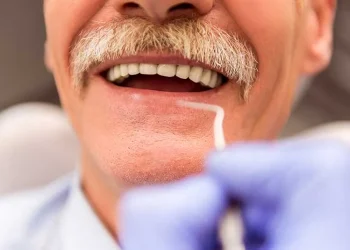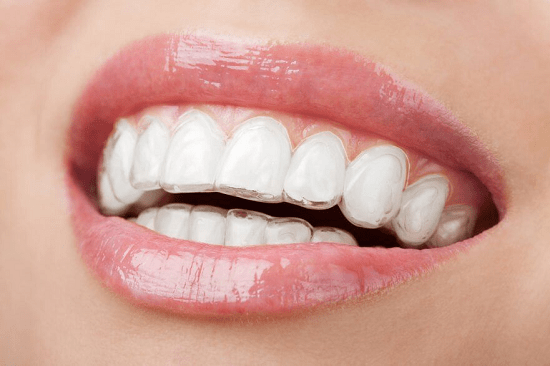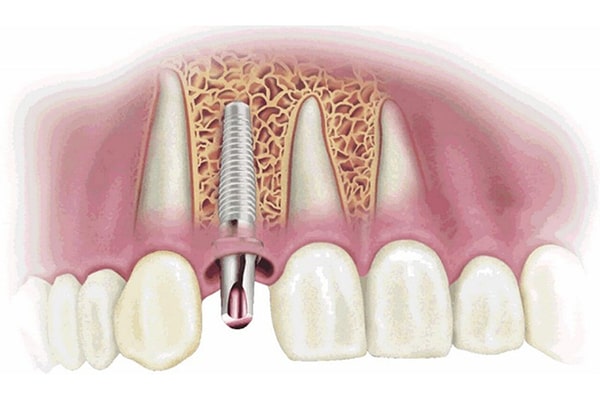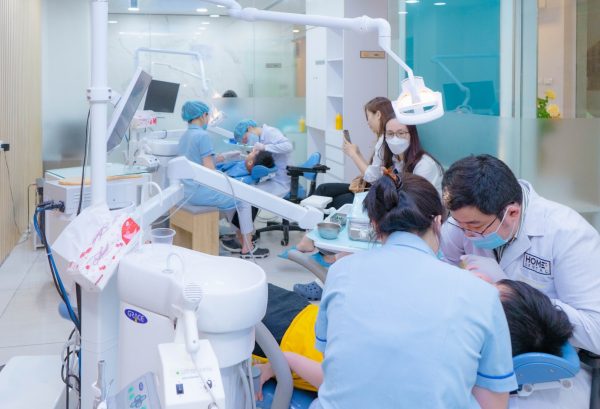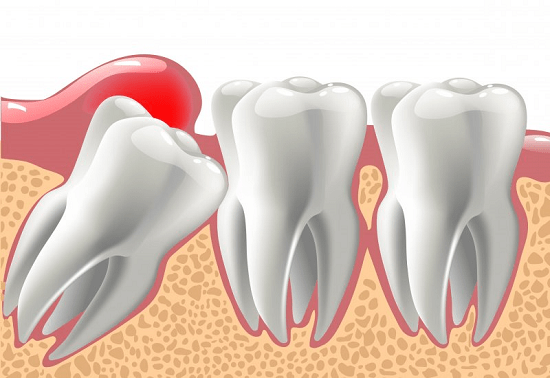Contents
- 1 Is Tooth Extraction After Root Canal Painful?
- 2 What is a root canal treatment?
- 3 Impact on teeth after root canal treatment
- 4 In which case the restored tooth after root canal treatment needs to be extracted?
- 5 Is it painful to extract a restored tooth after root canal treatment?
- 6 Note after extracting the restored tooth after root canal treatment
- 7 Dental Implant – Solution for extracting tooth after root canal treatment
Is Tooth Extraction After Root Canal Painful?
For many reasons, the tooth can have pulp inflammation or dead pulp, leading to the need to remove the pulp. After root canal treatment, many people often have porcelain crowns to protect the real tooth inside and prolong the life of the tooth. However, the restored tooth will become weak, over time it becomes more and more brittle and fragile. Then it is necessary to remove and replace the tooth. So is it painful to extract a restored tooth that has had its pulp removed?
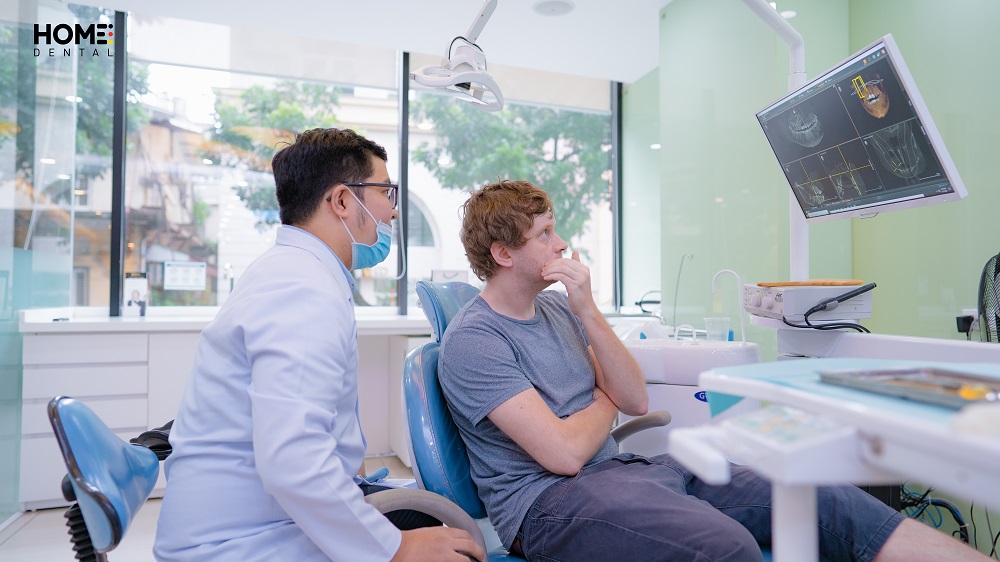
What is a root canal treatment?
Before answering whether extracting a tooth after a root canal is painful, we need to learn specifically about the pulp – a very important part of the tooth. The structure of the tooth from the outside in is the enamel, the dentin and the pulp. The pulp contains many sensory nerves and blood vessels to nourish healthy teeth, including pulp chambers and canals.
After the root canal treatment, the tooth with inflamed pulp has had the entire pulp removed as the pulp is infected, dead, or necrotic. After thoroughly cleaning the canal, the doctor fills the gap with specialized dental materials. The process of removing the pulp is quick and painless. When necessary, the doctor will give local anesthesia in the area of the tooth that needs to remove the pulp.
The doctor will usually limit the amount of pulp removal as much as possible. However, the pulp needs to be removed to prevent pain and control the spread of bacteria if the tooth encounters cases such as severe caries, infection, attack by bacteria, infected tooth root, exposed pulp due to broken, chipped, worn teeth, etc .
Impact on teeth after root canal treatment
Dental pulp plays an extremely important role in the health of teeth. When the source of nourishment is lost, the tooth will basically become weak and lose sensitivity to all external stimuli such as the hot and cold temperature of food. Then the teeth are considered dead teeth and only last for a period of time. Some of the effects on the teeth after having the pulp removed are:
Weak and easily chipped teeth
Teeth without pulp will be weaker because they are not nourished by blood vessels. Teeth gradually become brittle, easily broken, chipped, and can even crack vertically or horizontally. The lifespan of teeth will decrease, leading to permanent tooth loss.
Discolored teeth
After root canal treatment, the color of the teeth will not be much different from the other teeth. However, the teeth will gradually become duller, causing loss of aesthetics.
Impact on the nasal sinuses
In case the restored tooth is in the upper jaw near the sinuses, if the root canal treatment is not carried out carefully, it can affect the nasal sinuses. Some people may experience discomfort, nasal congestion or headache due to gas from the dental instrument penetrating into this position. This condition may persist for about 1-2 weeks after root canal treatment.
Impaired chewing ability
The teeth without pulp will affect your ability to chew as the teeth are not strong enough to chew food. You will lose your sense of food, leading to your inability to control your bite force and adapt to temperature. These things can make the teeth more susceptible to being chipped.
In which case the restored tooth after root canal treatment needs to be extracted?
The preservation of real teeth is a fundamental principle in dentistry. Therefore, even though the tooth has had a root canal treatment, the protection and care of the tooth is always a priority. Teeth after root canal have almost lost their functions and do not last long. Compared with real teeth, the lifespan of root canal teeth is short, only about 15 to 25 years.
To prolong the life of the teeth and limit the factors that cause further damage to the teeth, doctors often appoint fillings or porcelain crowns. This helps the teeth restore chewing function. However, in some cases, the tooth must be extracted to protect the gums and surrounding tissues.
Tooth abscess
Infection around the tooth causes pain, severe facial swelling in the infected tooth area, the possibility of fever or dizziness, etc. When the abscess develops and exposes a lot of the tooth root, it can no longer be preserved. The doctor will have to prescribe tooth extraction to clean the pus in the socket and relieve pain.
Inflammation of the tooth root (apex)
The area around the apex, including the ligaments around the tooth and the alveolar bone, is attacked by bacteria, helping inflammation occur. The doctor may have to cut the root of the tooth or completely remove the diseased tooth.
Loose teeth, broken teeth
At this time, the teeth are almost no longer functional. The dentist will remove the tooth to protect the gums and surrounding tissues and prevent infection.
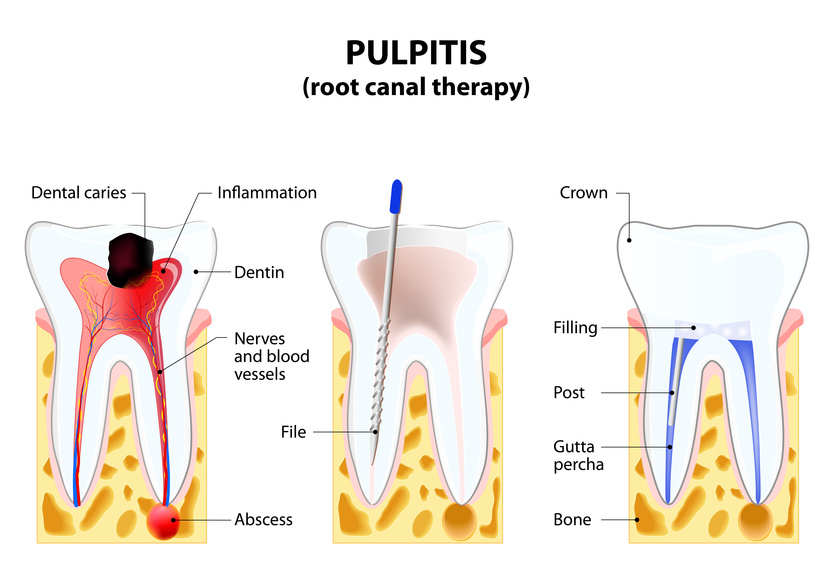
Is it painful to extract a restored tooth after root canal treatment?
Many patients wonder if it is painful to extract a tooth after a root canal treatment. Although the tooth has had its pulp removed and has lost its ability to feel, the root part of the tooth is still firmly attached to the jaw bone, the nerve sensation of the periodontal ligament around the tooth and the sensory nerve ending in the alveolar bone is still there. Therefore, extraction of a restored tooth is still as painful as when extracting normal healthy teeth.
The doctor will inject anesthetic when performing the extraction to reduce pain. After the tooth is extracted, the medicine will wear off, and there will be temporary pain and swelling. The pain will only last for 2 or 3 days and stop. The wound at the extraction site will be filled with a blood clot. If the doctor has good technique, and the aftercare is good, the pain is not significant. In addition, patients can take pain relievers as prescribed by the doctor.
Note after extracting the restored tooth after root canal treatment
Whether tooth extraction after root canal treatment is painful or not is affected by the post-extraction dental care. Proper care will help the wound heal quickly and avoid unnecessary infections. After the extraction is completed, you need to stay in the clinic for at least 30 minutes to monitor your health status. When you get home, there are a few more things to keep in mind.
Diet
After tooth extraction, in the first days, patients should eat soft, smooth, easy-to-swallow foods such as porridge, soup, smoothies, etc. Do not eat hard foods or food that has not been cooked thoroughly. Food that is easticky should also be avoided. These kinds of food can affect the wound, causing pain and bleeding. Abstain from foods that are too hot or too cold. Avoid spicy foods. Do not use alcohol, beer or tobacco. At the same time, avoid chewing on the extraction site so as not to be hurt and cause inflammation.
Dental hygiene
On the first day, patients can not brush their teeth but they should rinse their mouth with appropriate concentration of mouthwash. After that, the cleaning needs to be done normally to avoid infections. Brush your teeth every day with gentle force and do not affect the extraction site. Do not use a toothpick to avoid breaking blood clots and causing bleeding. Gargle to kill bacteria to protect the mouth and freshen breath.
Re-examination according to the doctor’s appointment
Usually, about 1 or 2 weeks after the extraction of the restored tooth , the wound will heal and the patient can return to normal activities. However, if abnormalities such as continuous bleeding, pain and swelling are detected, it is necessary to consult a doctor for timely examination and treatment.
After tooth extraction, patients may experience many complications such as jaw bone loss, gum recession, bite misalignment, displacement of adjacent teeth, impaired chewing ability and aesthetics, etc. Therefore, the tooth restoration methods to restore lost teeth should be done soon.
Dental Implant – Solution for extracting tooth after root canal treatment
To prevent the consequences of tooth extraction after root canal treatment, tooth restoration methods such as porcelain bridges, removable dentures or Implant teeth are no longer strange. In particular, Dental Implants are recommended by many doctors as it has the most outstanding advantages.
Integration abili
The Implant post is often made of Titanium. This material has high biocompatibility, ensuring safety for the human body
The ability to chew almost like real tee
Thanks to good materials and a complete structure from the crown to the root, the Implant teeth are durable and sturdy for patients to eat comfortably
High aestheti
The crowns are designed like real teeth, from shape, size, color, optical transparency, resistance to color, etc. Thanks to that, when placed, the Implant teeth bring natural beauty to patients. It will be difficult to distinguish Implant teeth from real teeth
Preventing jaw bone loss.cs.th.ty
Currently, this is the only method to prevent natural bone loss that occurs after tooth loss by maintaining the chewing force on the jawbone.
Unaffected surrounding teeth
Implant teeth are placed right at the position of the lost teeth. There is no need to grind or invade other teeth. The teeth nearby are preserved intact. Therefore, Dental Implant is suitable for most cases of tooth loss.
Easy tooth cleaning
Implant teeth are fixed on the jaw, and can be cleaned at home like real teeth in a simple way.
Durability
Dental Implants can last up to 20 years or forever when cared for carefully. Therefore, patients can do it once and use it for a lifetime, saving time, effort and cost of doing it again and again.
In conclusion, tooth extraction after root canal treatment is the same as normal tooth extraction. Whether it is painful or not depends on many factors. However, if patients have their teeth removed at a faithful clinic with skilled doctors, there is nothing to worry about. To prevent bone loss after tooth extraction, patients should have Dental Implant, an optimal solution for restoring lost teeth.


